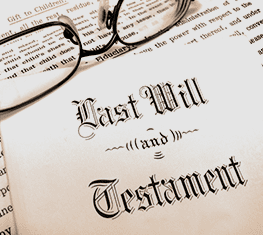Tips for estate planning can come from many people and places. The most important thing that you probably won’t hear is that you may have already done a substantial amount of estate planning without even knowing it.
The best tips for estate planning that I can offer involve a little basic education first. Most people, when they hear the term, “estate planning,” they think of Wills and, in some cases, trusts. While Wills are a necessity and a Trust can be helpful in certain circumstances, you can take critical steps to protect your family without even having a Will or Trust.

Probate Assets
To understand this, you must understand what a Last Will and Testament does. A Will passes probate assets to your beneficiaries, the people you choose to receive them. A probate asset is anything that is owned solely by an individual. Examples of probate assets include your personal property and furnishings, bank accounts held solely in your name or a car, house or apartment titled solely in your name alone.
Non-Probate Assets
Wills do not cover, or pass, non-probate assets. These assets pass outside a Will and, usually, are transferred to specified recipients much faster than if they would if transferred by a Will. Examples of non-probate assets include accounts or policies with designated beneficiaries, like life insurance or joint bank accounts. They also include property titled as joint tenants with rights of survivorship or tenancy by the entirety (how married couples jointly own property.)
If you are in a long term relationship and have an IRA, a 401(k) or 403(b) account, a joint bank account and you own your home or apartment jointly with your spouse or partner, then there is relatively little that would be considered a “probate” asset, therefore, very little need for the probate process.
What is Probate?
While the specific process differs state by state, probate is the process that transfers legal title of property from the estate of the person who has died to those named in that person’s Last Will and Testament under the supervision of the local surrogates or probate court. If the person who has died has successfully minimized their inventory of probate assets, then there may be nothing which would require a probate court’s intervention. This is successful estate planning.
Wills and Trusts
It is always wise to have a Will, even if you have maximized your non-probate assets. Wills ensure that nothing falls between the cracks and, if your probate estate is under a certain amount, for example – in New York, a small estate proceeding can be accomplished if probate assets are valued at less than $30,000.00 – then you may be able to avoid a full probate proceeding. If you have children that are minors, you should consider creating a Will with a testamentary trust (a trust that does not come into existence unless you, or you and your spouse or partner both die). This trust allows you to control the way money is distributed to a minor and by whom. Trusts are also advisable for people who own property in states other than those in which they reside. This will help to avoid costly and redundant probate proceedings.
For more information on tips for estate planning for same sex couples, contact us today!





